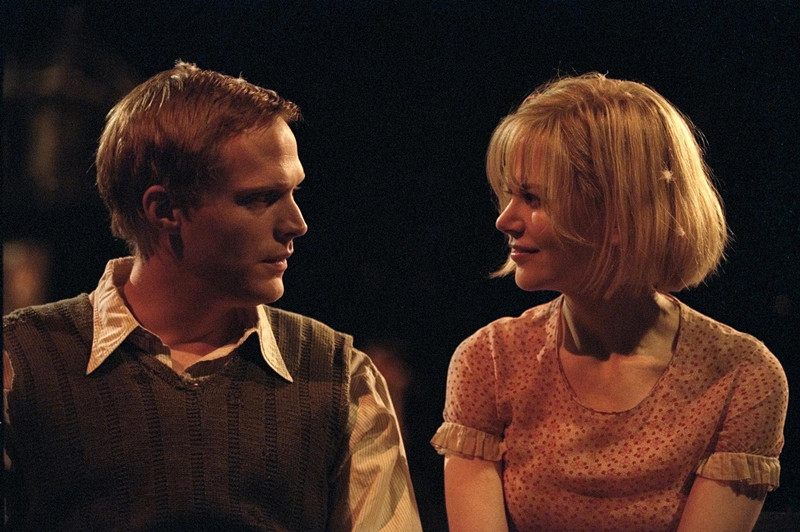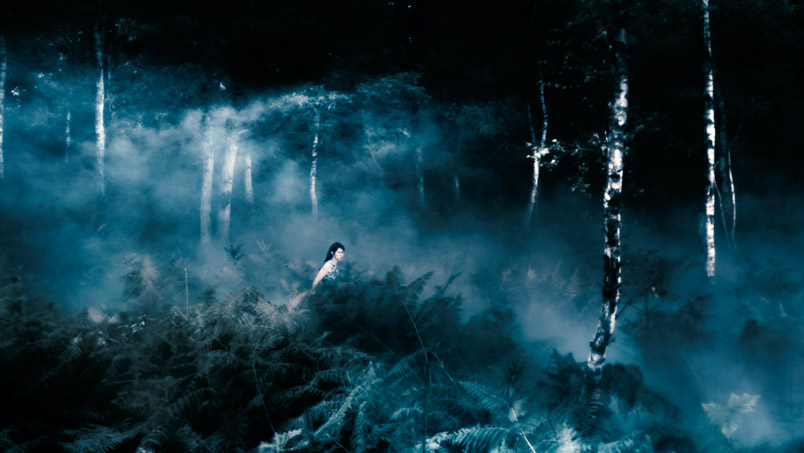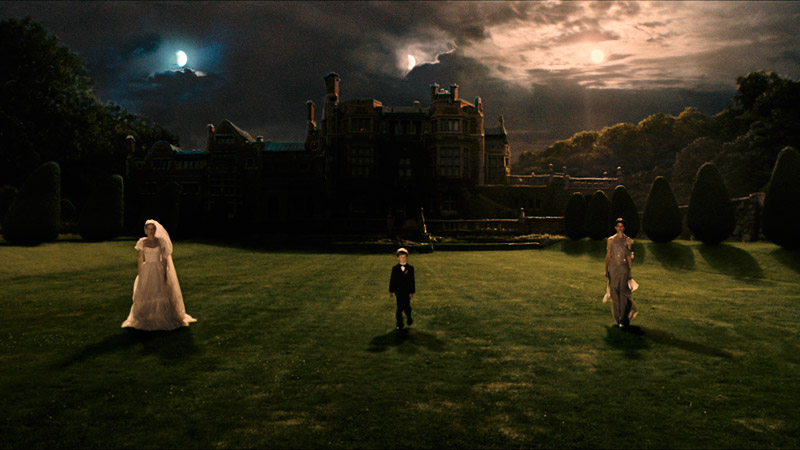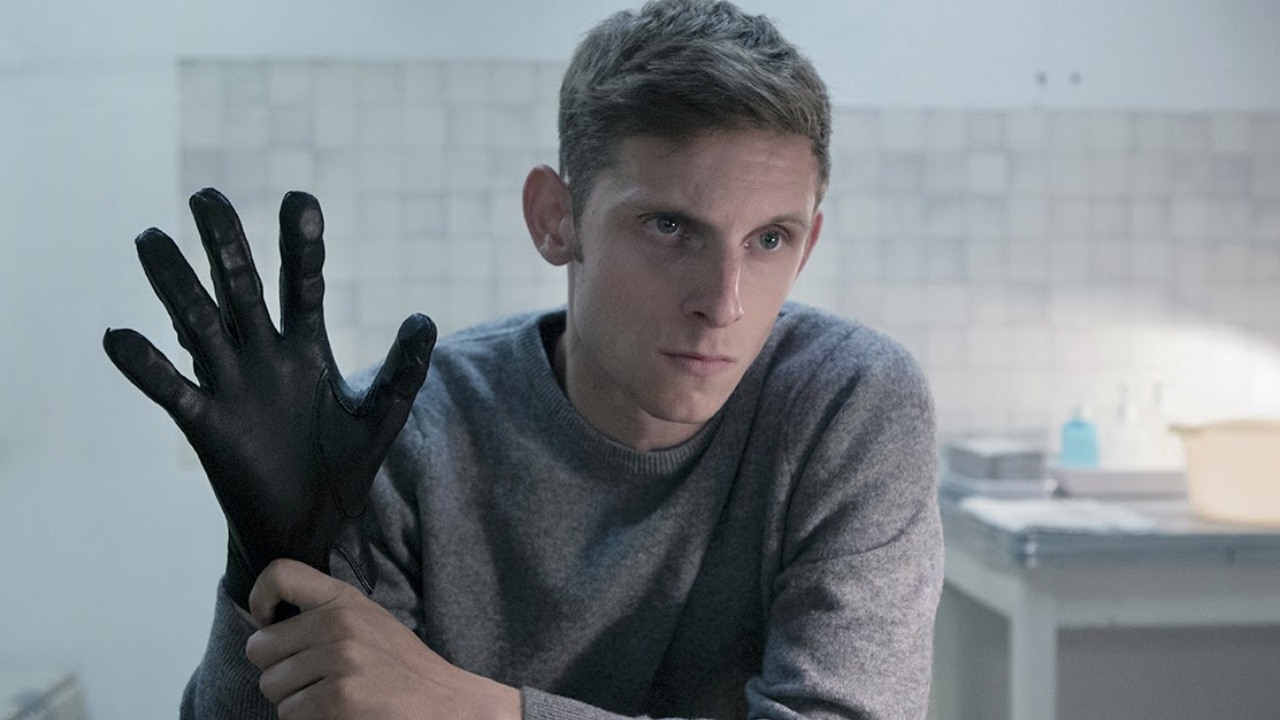5. Dogville

Dogville follows Grace (Nicole Kidman), a young runaway who is trying to escape the clutches of the Mafia (really, it’s unclear why, at least at the beginning of the film). She happens upon a small Colorado town and is promised safety there.
We see the locals protect her time and again from outsiders and, in exchange, she begins to labor for them. Yet, over time, their protection becomes more and more expensive, as they exploit her in a number of ways. She begins to question just how much her secret is worth but, given that she is in grave danger, she resigns herself to playing by their rules.
Before long though, she does indeed try to leave the town, and is in return captured and abused. Even the children of Dogville are cruel to Grace and ultimately she wishes for the Mafia’s return, so that she can end her long and arduous time in Dogville.
Another one of von Trier’s better films, Dogville is certainly unique. Really, it’s put together as a piece of theater, not film, and that fact allows for it to shed light on the little things (and the not so little) that members of a community tolerate behind closed doors.
This is a tool the rest of this trilogy of films (Manderlay and, in theory, Washington) will use. We see Grace do annoying tasks, we hear the different gossip in the town about her, and we even see different male characters take advantage of her.
Because of how “in-your-face” Dogville’s pantomimed set is, it’s hard for moviegoers to overlook the constant exploitation that Grace undergoes.
Von Trier is really asking his viewers to consider their towns, big or small, and to think about the big and little things that happen almost daily in them to the disadvantaged. Do we not all, as members of communities, states, and nations, share responsibility for the bad things that we allow to happen?
6. AntiChrist

AntiChrist is von Trier’s most jarring and sick film. So much so, that in no way can I recommend it to this audience, or to any audience, ever, for any reason. This film isn’t really art, philosophy, or even narrative. It’s just sick.
It begins as we see a couple (Willem Dafoe and Charlotte Gainsbourg) make love while their toddler, ignored or forgotten, wanders out a second story window and falls to his death. The couple then retreats into the woods to a cabin where they try to deal with their grief.
What follows would only be justifiable if Gainsbourg’s character were the antichrist herself. She reacts dramatically, to say the least, and tortures herself and her husband in a series of events that shouldn’t, frankly, be allowed on screen. Von Trier says this failed to be a horror film, but it seems like it would be difficult to put anything anymore hellish on film without prompting the apocalypse itself.
The film is clearly an examination of sexuality, death, and grief. It is broken out into several chapters, like many von Trier films, all of which feature heavy symbolism and theological undercurrents.
Unfortunately, von Trier’s quest for vulgarity and the raw muddles any message that might come out of the film, leaving it an incomprehensible series of events that show just how chaotic and entropic one might feel after losing a child or loved one. There is something to be said for the grieving process, which von Trier highlights in Melancholia.
Gainsbourg’s character in AntiChrist never really has time to grieve, and it seems like her reaction is in part due to this fact. Ultimately, I’m not as sure that there can be more said for this film than that. Ebert gave it 3.5 stars. I don’t think I have the stomach for a second viewing, or perhaps I just care too much for my soul.
7. Melancholia

Melancholia is one of the cleaner von Trier films and, if you take it seriously, perhaps one of the most profound (if you don’t, it will be laughable at best, and very, very long). It follows Justine (Kirsten Dunst), a young woman getting married and dealing with some serious personal issues. I’d like to think some of these issues were inspired by von Trier’s depression, but it’s hard to say just how many of them might be.
The film is an exploration of nihilism and depression. We see a family learn of their imminent deaths and get to watch as they try to deal with it individually and as a community. I often recommend this film, both because it does some beautiful and interesting things, and because it’s the perfect film to watch before The Tree of Life if you’ve ever wondered about the philosophical and personal comforts that Christianity and nihilism can provide.
Von Trier goes all in with Melancholia, showing us the end of the world in the first 15 minutes of the film (which fits perfectly alongside Wagner’s ever-powerful Tristan und Isolde).
We then go back in time, and watch the characters slowly realize that they are coming to their end. One might think this would make their existence so much more sweet, but it actually makes every moment more agonizing and launches Justine into a depression so deep she can’t manage to bathe herself.
By being forced to come to terms with her death and by having the proper time to grieve her life (and her marriage, though this is another matter for the first half of the film), Justine is finally able to achieve peace and to meet her death with the calm like that of Private Witt in The Thin Red Line.
But, unlike Witt or Malick’s other characters, Justine has come to terms with the abyss and with total inexistence and nihilism. In a final and selfless act, she merely tries to comfort her family as they meet their deaths.
8. The Nymphomaniac

Von Trier’s latest film pushes all the boundaries again and, in some ways, is worse than Anti-Christ (which seemed unthinkable prior to this film).
It follows Joe (Charlotte Gainsbourg), a proud and self-proclaimed sex addict, as she retells her life’s story to Seligman (Stellan Skarsgard) after he finds and rescues her from the streets. She recounts every story in graphic detail (which von Trier depicts, of course, far too graphically), while Seligman “innocently” allegorizes her story with Izaak Walton’s The Compleat Angler.
Joe goes through phases in her life and in her storytelling, which are broken up into the usual von Trier chapters. The music and cinematography are amazing, allowing the film to have one of the best intros that I’ve ever seen. If only the film had continued on as such.
The film is actually primarily about judgment and escapism, and not so much about sex or addiction. Joe definitely has her fair share of problems, but time and again she is judged by others and taken advantage of because of her situation (if you haven’t noticed yet, this is a common theme in von Trier’s films).
Joe even takes advantage of herself and her situations, using sex to escape from difficult moments and to avoid confronting the real issues she needs to, like the death of her father. Existentialist, to be sure, and interesting in the way that de Beauvoir’s works are, the film is deeply philosophical.
Still, I can’t help but wonder if, like his others, von Trier doesn’t take the themes way too far. Escapism and inauthenticity aren’t that unique or creative, and are certainly concepts that could be conveyed via other vehicles more appropriate for those under 13.
Author Bio: Ben Wilson graduated from Yale College in 2014 where he studied Philosophy and Political Science. He currently lives in Houston, TX, with his wife Rachel, where he works as a consultant while directing his first feature-length film. If you’re interested in discussing this piece or joining his film project, please contact him.